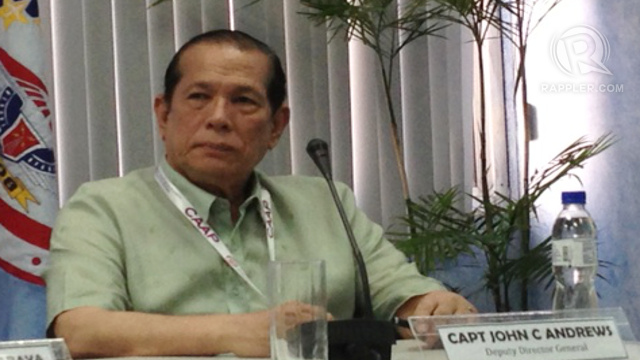SUMMARY
This is AI generated summarization, which may have errors. For context, always refer to the full article.
MANILA, Philippines – Budget carrier Cebu Pacific would not be sanctioned for an airport mishap involving one of its planes, but it would be asked to comply with an action plan that stresses safety, regulators said.
In a press briefing on Tuesday, June 25, Civil Aviation Authority of the Philippines (CAAP) Deputy Director General John Andrews said they would closely monitor the Gokongwei-owned airline in the next month or so to ensure it follows industry standards and safety procedures.
“In line with the results of our investigation, we are increasing our surveillance of Cebu Pacific by pushing for a corrective action plan,” he said.
A Cebu Pacific plane skidded off the Davao International Airport runway in bad weather on June 2, coming to a halt on muddy ground.
All 165 people on board, including the two pilots and 4 crew, were unharmed, but angry passengers claimed they were given no assistance after the terrifying landing.
The pilots were suspended for several lapses that CAAP said led to the incident.
As for Cebu Pacific, among CAAP’s recommendations was allotting more turnaround time between flights to avoid mistakes.
“When you speed things up, you sometimes forget something,” Andrews said. “We can say Cebu Pacific is safe. We just want to make it more safe.”
Asked if CAAP would slap Cebu Pacific with a fine after the incident, the official said the agency was in no position to do this. He said their only concern was safety.
But he said the airline could still face a fine in relation to damage and losses caused to the Davao airport, the country’s main gateway to the south and 3rd busiest airport.
The incident also cost the Davao City economy almost P250 million in revenues and 15,000 travelers in the 2 days it was suspended.
Cebu Pacific said in a statement that it would comply with all the aviation authority’s recommendations and would improve its training procedures.
The airline began commercial operations in 1996, attracting customers by offering cut-rate fares to local destinations.
It has expanded operations in recent years, now flying to many major Asian cities. Cebu Pacific boasts that it carries more passengers than any other airline in the Philippines. – With reports from Lean Santos/Rappler.com and Agence France-Presse
Add a comment
How does this make you feel?

There are no comments yet. Add your comment to start the conversation.